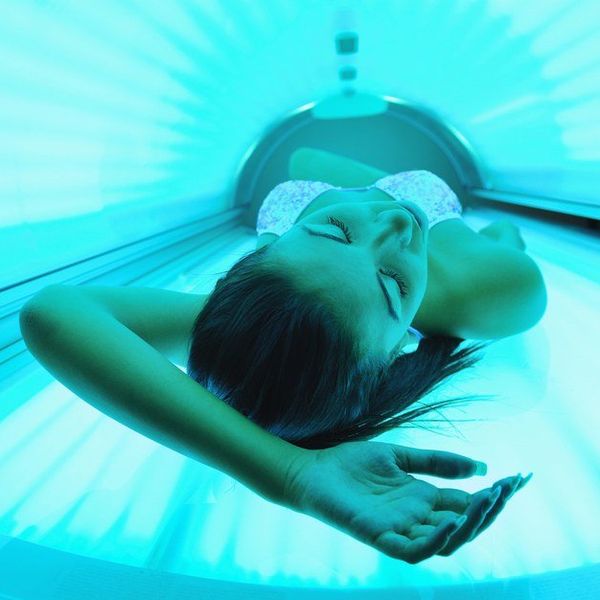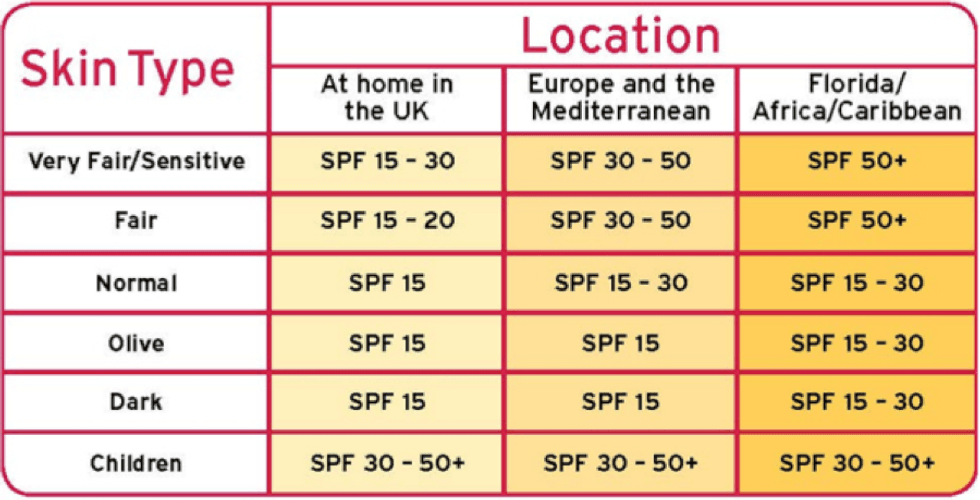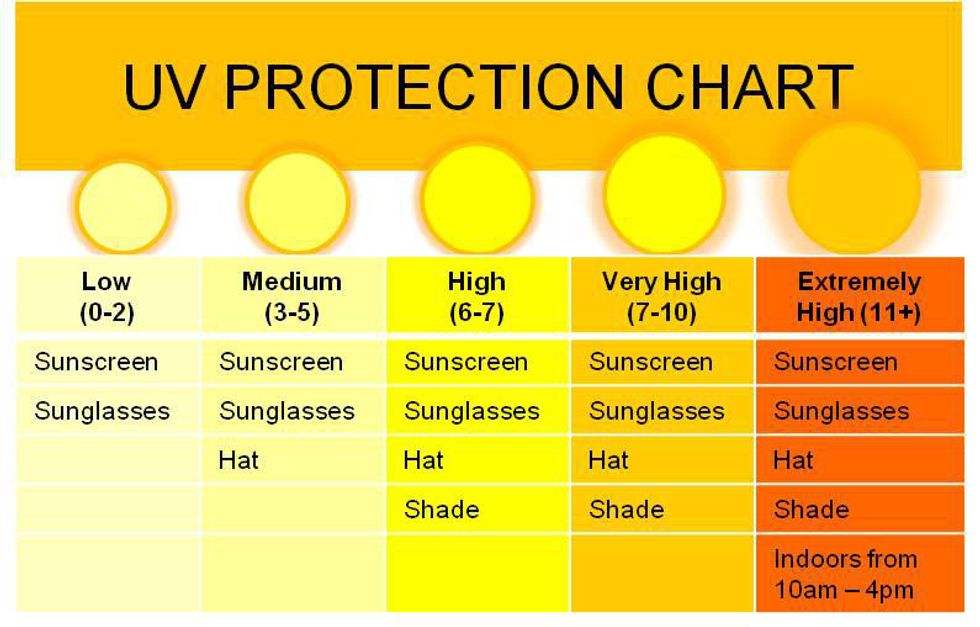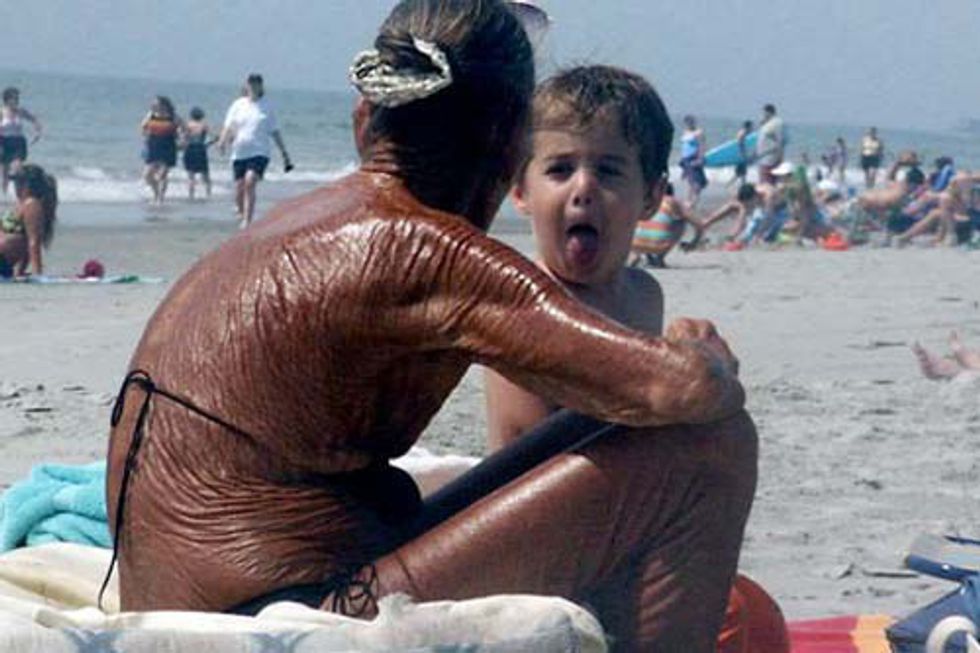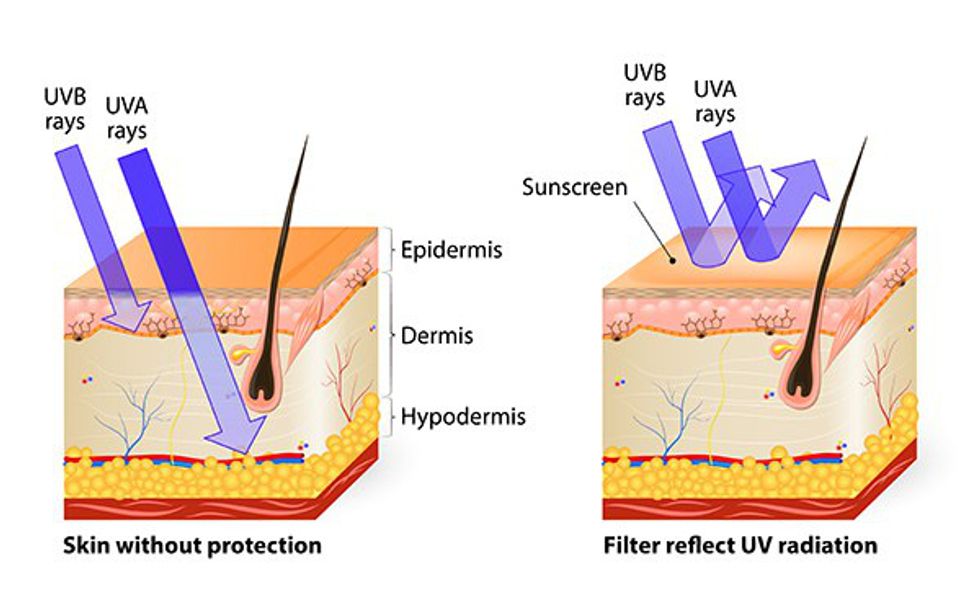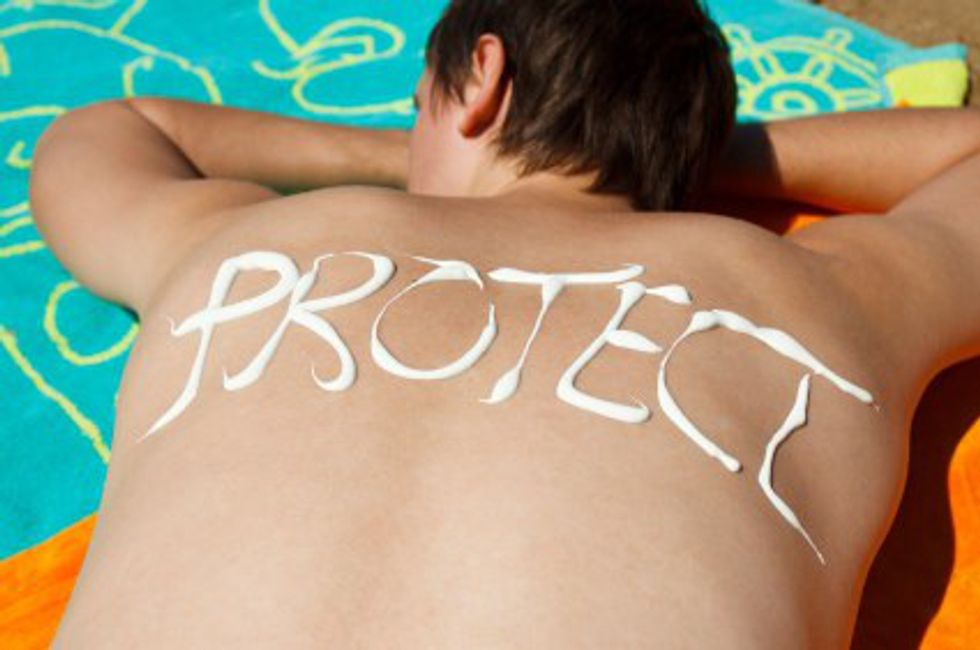Summer is finally here! After a stressful school year, you're looking forward to spending your free days laying out by the pool or taking a much deserved vacation. Since you know you'll be spending a lot of time in the sun, you make sure to bring some sunscreen with you. Once you arrive at your destination, whether it be for an afternoon of tanning, a few hours in the water, or even a couple miles of hiking, you rub a bit of the lotion on your face to avoid a raccoon burn from your sunglasses, but call it good after that.
You want to get tan for the summer and know that you personally hardly ever burn, so you feel like you've covered what you need to and are all set to go. You head off on your adventure, come home a shade or two darker but with no noticeable burns, and don't think twice about the time you spent in the sun that day. You think you did everything right in that scenario and avoided damage from the sun, but unfortunately, that was not the case.
Skin damaged caused by the sun is a topic that the majority of the public are misinformed about, so much so that it is ruining lives. From the misconception that tanning isn't harmful to the false notion that skin cancer is common and curable, people are putting themselves at risk every day for irreversible damage to their bodies that will affect them on both health and cosmopolitan levels. Below is a breakdown about the myths of sun damage, its effects, and ways to prevent it.
Myths About Sun Damage
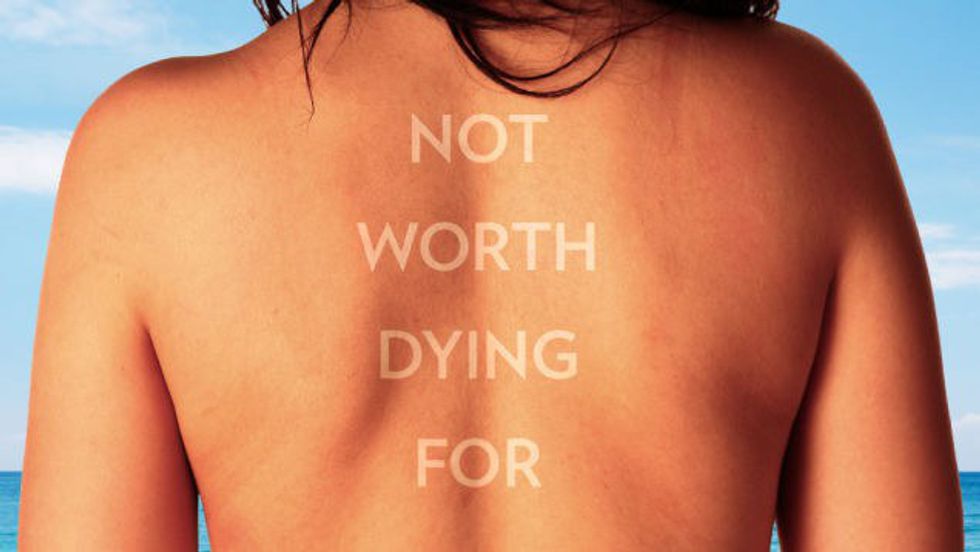
1. "As long as I didn't get burned, my skin didn't receive any damage."
This is by far the most commonly believed myth about time spent in the sun. Everyone seems to be laboring under the illusion that a lack of a visual effect means that no harm took place, and this couldn't be farther from the truth. Prolonged time in the sun without proper protection causes skin damage, period. If you are desperate to look "darker" and think that the only way to obtain this look is to lie out and cook yourself to the desired color, you're incorrect. You WILL tan even through your sunscreen, guaranteed. I myself work a job outside every day and even with reapplications of sunscreen every hour, have ended up much tanner than when I started just a short while ago, and this will be the case for anyone.
2. "I don't burn/I'm too dark to burn, so the sun doesn't effect me."
Back to the earlier statement, just because a burn isn't present doesn't mean that damaged wasn't caused. What may show up as a seemingly harmless tan on one person and a bright red burn on another could very well be the same amount of inflicted harm. The sun does not discriminate based on race or skin tone.
3. "I put sunscreen on once so I'm all set for the day."
Sunscreen does not last more than a few hours at most, some last even less. If you're spending time in the sun then odds are that you're sweating, which quickens the wearing off process, as well as any encounters with water, sand, towels, and pretty much any substance to contact your skin. And even without these factors, just like soap or lotion or any other object you apply to your body, sunscreen fades and needs to be reapplied every few hours, especially if tempered with or compromised.
4. "My sunscreen is waterproof so now that it's on, I'm good to get wet right away."
Sunscreen, waterproof or not, takes approximately 15 minutes to dry and settle onto your skin in order to be affective. A waterproof sunscreen simply runs less when in contact with liquid, making it a more comfortable product for users. It stills follows the same rules of reapplication as regular kinds as well.
5. "I'm using SPF 100+ that way I won't receive any damage at all."
SPFs of sunscreens are commonly misunderstood as how they work, for understandable reasons; companies do a poor job at marketing sunscreen to begin with, let alone educating buyers on how to properly use them. SPFs have more to do with the total amount of time spent in the sun per day than the amount of time you can where them for without needing to reapply. A high SPF sunscreen may seem like it will last longer than a lower one, but the truth is that you should always follow the 2 hour rule for reapplication, no matter the SPF. The number also relates to the intensity of the sun in the area where you are. The sun in the UK is going to be much different than in the Caribbean, where a stronger sunscreen will be needed, but just as frequently. Additionally, people with fair and/or sensitive skin often have allergic reactions to higher SPFs because of the strength of the chemicals, and do much better with lower SPFs and more frequent applications. Don't let the number trick you into equating it with time and thinking that you're off the hook.
6. "It's cloudy/rainy out so I don't need protection."
Another extremely common misconception about sun damage. While you may feel less effected by the sun when clouds are present and temperatures are lower, the rays are still coming through and still reaching your skin.
7. "Skin cancer is common and therefore curable."
This could not be farther from the truth. Yes, 20% of Americans will be diagnosed with a form of skin cancer at some point in there lives, but this certainly does not mean than a cure has been found. There are treatment methods but nothing is guaranteed to work, as skin cancer is indeed a form of cancer. The deeper the cancer is in the skin cells, the harder it is to remove, and the more life threatening it is. Skin cancer is just as real and dangerous as any other form, but is also the easiest to avoid from the start. Why chance a battle with cancer with there are sure fire ways to avoid getting it in the first place? Skin cancer not curable, it is preventable.
8. "A sunburn won't effect me down the road."
Any and all damage caused to tissue in your body is permanent and irreversible. Just like damage to brain cells or the lining of your lungs, once it's gone or harmed, it's not going to be repaired. While you might not have immediate repercussions from skin damage, you can be sure that it will manifest itself down the road in the form of health related issues or accelerated aging of your skin.
9. "One sunburn isn't enough to cause my skin permanent damage."
The most dangerous myth of all, one single sunburn can in fact ruin your life. If you've been burned before or are by some chance in the future, don't be alarmed, but it is something to be aware of; some instances of skin cancer arise because of one short period of time in the sun without proper protection. Any time you expose your skin to direct sunlight for more than the suggested amount can put you at risk of receiving damage that could change the course of your life.
10. "The UV index isn't something I need to understand."
While the UV index may seem like something only used by meteorologists, it's actually a very helpful and simple tool to use to figure out what kind of sun protection you need for the day. It informs you how intense the suns rays will be that day and the protect that is essential to avoiding skin damage.
Effects of Skin Damage From the Sun
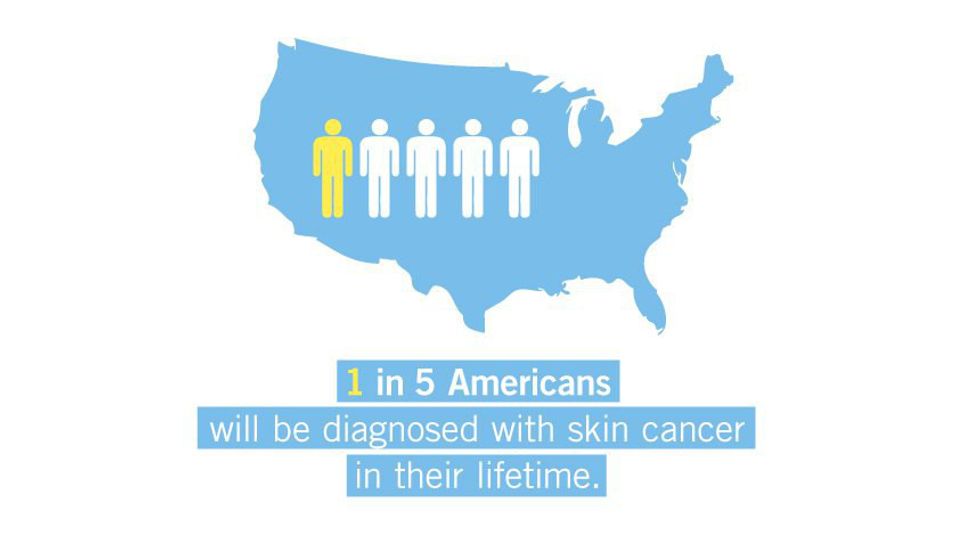
1. Cancer
This is usually the first connotation to come to mind when people think of the negative effects of sunburns and damages, but many people don't take it seriously. They see skin cancer as less threatening and more curable than other forms of the disease, which certainly isn't the case. As mentioned earlier, it is cancer like any other form is, and is hardly ever treated as simply as removing a mole, the method most people seem to believe is a magical cure. Each year, there are more cases of skin cancer than breast, prostate, lung, and colon cancers combined, with more people over the past 3 decades being diagnosed with skin cancer than all other cancers combined. Skin cancer is real and it is deadly.
2. Rapid Aging
The desire for a more appealing look is what leads most people to spend long periods of time in the sun unprotected rather than laziness, but the painful irony of this is that this behavior that individuals seek to make themselves look better will come back to haunt them down the road by causing them to outwardly age faster than their peers. Damage to skin cells by the sun causes rapid wrinkles and can make people appear to be decades older than they really are. Don't make a temporary vanity decision in the present that will affect your looks permanently later in life.
My dermatologist has this photo in his office with the caption, "I just look better with a little color".
3. Career/Relationship/Life Ruining Events
As dramatic as this may seem, it is the truth. When informing my mother, who is both a nurse and a skin cancer survivor, about my intention to write a piece on sun damage, I asked if there was anything she thought was important not to leave out:
"Not taking care of your skin comes back to haunt you when you finally have every you've always wanted. I had a career, a husband, and two young children and something stupid I did once as a teenager (not wear sunscreen and get sunburnt) almost cost me my life. My kids could have grown up without a mom had I not caught it early, because we don't have any really good weapons to fight skin cancer."
We hear it all the time and maybe we roll our eyes, but there is complete truth in the notion that the decisions we make now will affect us more than we can imagine down the road.
Prevention
1. Sunscreen/sunblock
Sunscreen and sunblock are terms that are often used interchangeably; however, they are technically two different products. Sunscreen is what you think of when you picture coating your skin in SPF lotion, while sunblock is what you may see people used in stripes on their cheeks or noses. Both are effective methods of sun protection, just with different ingredients. Sunscreen is often preferred because sunblock is often difficult to spread and opaque, where sunscreen can be rubbed in and has a less thick and greasy texture. Suntan lotion is NOT a form of sunscreen or sunblock, as it is meant to speed up the tanning process and actually causes damage faster than with bare skin.
2. Hats/sunglasses
While these types of wear might seem like they're just made for comfort, they actually serve a health-related purpose as well. Hats provide portable shade for your face, where you are most likely to get burned, and when paired with sunscreen, work wonders for keeping your cheeks and nose from burning. Sunglasses prevent eye damage from the brightness and also from the dangerous rays, as skin cancer can occur in the eyes as well as the skin itself.
3. Intelligence
Be smart! Make good judgement calls about the type of sun protection you might need where you're going. Who cares if you're going to be little greasy or take an extra few minutes getting ready if it means you're taking care of your health and future. Keep a bottle of sunscreen in your car, make sure you've grabbed your hat before you go to the ball game, just think scenarios through that way you aren't caught off guard without your necessities. As my mother always says, better to have it and not need it, than need it and not have it!
If you'd like to learn more about skin cancer and ways you can protect yourself from the sun, check out the American Skin Association, American Cancer Society, Skin Cancer Foundation, and your local dermatologist! Have fun this summer and BE SAFE!

